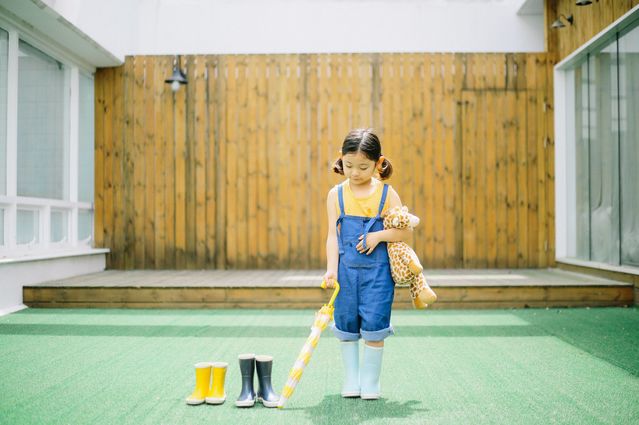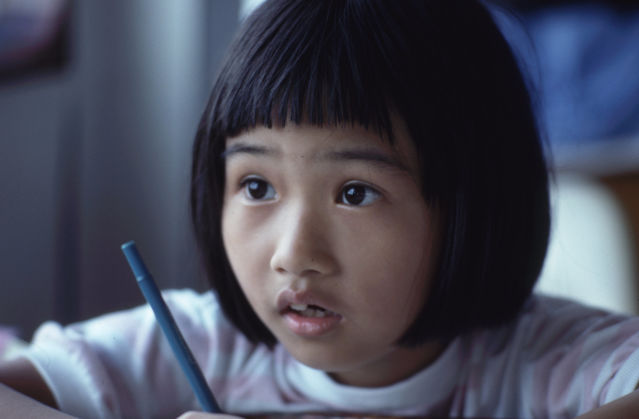Health
The Non-Conforming Asian Women
The wounds of being a non-conformist in a conformist society.
Posted July 13, 2018
Not all Asian women want to be a lawyer, a doctor, or an account.
Not all Asian women want to bleach their skin white or to stay stick-thin.
Not all Asian women want to be married by 30.
Not all Asian women are quiet and submissive.
In many East Asian cultures, including that in China, Japan, Vietnam, Korea, Taiwan, Singapore and Malaysia, the social pressure to conform is enormous. Being hierarchical and collectivistic (as opposed to ‘individualistic’), these cultures value conformity above individuality. People are pressured to do all they can to maintain the status quo, or the outer harmony, even at the price of individual autonomy, voice or needs. For women, in particular, there are many unwritten rules: They need to look a certain way, study in specific fields, marry a particular type of person and by a certain age.
But not all Asian women neatly fit into these criteria.
The rigid social standards can be abrasive and coercive for all women but are especially challenging for girls and women who do not conform to the standardized way of thinking, feeling, and being in the world.
From a young age, she has a strong urge to rebel against the imposed manners, taboos and limits. As a teenager, she could see through the tactics, manipulations, guilt trips that are designed to control, rather than for any real benefits.
It is not that she intentionally tries to make things difficult, but her perceptiveness, curiosity, and drive mean that she naturally stands out, and from a young age, she attracts the labels of being the ‘maladjusted rebel,’ the black sheep of the family, or the ‘trouble-maker’ in class.
Throughout her life, the non-conformist Asian woman is repeatedly invalidated for her ways of thinking, feeling and being in the world. As she makes independent choices that do not conform to the norm, she also experiences guilt, a deep fear of disapproval, or even alienation. And when it gets too painful, she might have to resort to giving up and to silencing herself.
As she moves through life, however, she continues to struggle with the battles between two voices. When the family-pleasing, society-conforming self asks: "What do they want? The true self asks: What makes my heart sing?” When the gap between the two become too wide, she would be no longer able to hold both together. That is when life — kindly but forcefully— invite her to forgo the safe and well-worn path and take a plunge into the unknown.

If you obey all the rules you miss all the fun
- Katherine Hepburn
Unique Challenges faced by the Nonconforming Asian Woman
The following are some of the unique challenges faced by East Asian women who do not conform.
THE ’TIGER PARENT’ WOUND
This might be a gross generalization, but Asian parents tend to be great providers for their children's physical needs but pay scant attention to their state or feelings. Research in the field of psychology finds that Asian parenting is more likely to be “authoritarian”— a style that emphasizes high standards but a lack of emotional warmth, rather than“authoritative” parenting, which also emphasizes high standards, but is supplemented with high levels of warmth and discussions that help the child understands the rationale behind discipline.
The 2011 bestseller Battle Hymn of the Tiger Mother has become a phenomenon because so many have resonated with, or were shocked at, what the author Amy Chua described as her childhood: No play dates, no TV and having to always be No. 1 in everything; moreover, shaming, withdrawal of affection, and harsh criticisms are common practices. While Amy Chua renders the Tiger’s Mother way as ‘superior,’ most research suggests otherwise. ‘Helicoptering,’ harsh and perfectionist parenting undermine children’s confidence and self-esteem; and they tend to develop more aggression and depression and have poorer social skills. Unfortunately, The wounds of growing up with a ‘Tiger Parent’ is often swept under the carpet in an Asian community, as harsh parenting is glorified as being ‘for your good.’
In most cases, the parents do have the children’s best interest at heart, and research says that some do respond well to authoritarian parenting and become high-functioning, well-adjusted adults. In other occasions, however, the parents might have ‘used’ their children in an unhealthy way to fulfill their own emotional needs. For example, parents who feel unfulfilled in their own lives may see their daughter as an extension of themselves, and see all of her behaviors or outward achievements as a reflection of them.
It is a painfully familiar stereotype: Asians tend to be forced into pursuing the STEM (Science, Technology, Engineering, and Mathematics) subjects, regardless of their own interests, often due to the parents’ narrow definition of success. When she performs well according to the parent’s expectations, she was crowned the “trophy" child, the golden girl, so she learned to build her self-esteem based on external achievements and to manufacture an identity that was carefully tailored to the parents’ demands. If the creative girl wants to do something else, she is dismissed as being an unrealistic, idealistic, or even ‘spoilt’ dreamer. Whatever interests there were in the arts, humanities, music and other ‘impractical’ fields were to be buried. Even as she grows older, she remains a planet in orbit, circling the ‘mother sun.’ Since all the love that she has received has been conditional, she might also find it difficult to take in genuine love, or to trust others in an intimate relationship. And because she had little room to explore her inner self, she might grow up feeling unsure about her likes and dislikes, confused and empty on the inside.

“ I have space within me for a second, timeless, larger life’
-Rilke
THE ‘EAT AND STAY THIN’ DOUBLE-BIND
In Asia, both eating and body shape are not private, but public issues. The Asian girl is often trapped in a double bind: She is on the one hand being pressured to eat and fat-shamed on another.
Despite the dramatic rise of eating disorder across nations, the pressure to be thin is a big part of the narrow standard of beauty. Advertisements for slimming centers and treatment bombard everywhere in the media, ads, and billboards. One could hardly escape the cultural code that dictates - literally- how much space women are allowed to take up in public space.
The irony is, Asian girls are also pressured to eat. Over the Asian dinner table, eating is almost a filial duty, rather than an organic process; “Eat this” is a common instruction over the dinner table in the Chinese and Filipino culture. The abundance of food defines most family gathering, celebrations and festive times. This double-bind is vividly captured on the Thick Dumpling Skin campaign website: “We all have families who tell us what to eat when to eat, and extended families who make plenty of unsolicited comments about our food. They tell us we’ve overeaten, too little, and too much again. One day we’re too skinny. And within a matter of days, we’re too fat. No matter what we’re told, we’re always offered seconds. And thirds. We are afraid to offend, so we oblige and take fourths. Sometimes we pretend we’ve already eaten. Merely saying “No thank you” – and being heard – isn’t a realistic option. “
In Asia, fat-shaming is common, especially amongst family members. Since weight and appearance is not a taboo subject in public, it is almost normalized to comment on one’s weight without tact or political correctness. “You looked like you have gained weight” is commonly heard over family gatherings; and since it often comes from someone senior, one is not ‘supposed’ to stand up against it. Blogger Jennifer Chen has described this phenomenon well: “At any family gathering, conversations often revolve around who has gained weight and who has lost weight. So-and-so used to be so cute as a kid, but now they’ve really gained a lot of weight.”
The more resilient girl might have stood her ground, and models self- confidence despite not fitting in the model standard. Not everyone, however, has immunity against the paramount pressure and daily erosion of judgment, unsolicited comments, and invalidation. Symptoms such as obsessive dieting, self-hate, compulsive eating, and body dysmorphia only skim the surface of what the rigid beauty standard does to Asian women.

“You are imperfect, permanently and inevitably flawed. And you are beautiful.”
― Amy Bloom
PATRIARCHY AND SEXISM
Asian women are celebrated for their compliance, adaptability, gentleness and youthful sweetness. They are taught to play the femme fatale, the dutiful daughters, and the charming wife, but not to be assertive or ambitious in their career. Many Asian girls have grown up with Disney’s stories; In these fairy tales, women are either the helpless damsels or the ‘eternal girl’— Both Sleeping Beauty and Cinderella ultimately needed to be saved by their princes. In other words, the implicit cultural script says that her success is at least half dependent on her spouses’ resume for security.
Although things are slowly changing, many women are still made to believe that they have an ‘expiry date.’ In Japan, unmarried women 25-year-old or older are called the “Christmas cake’: Buying a cake for Christmas is a Japanese tradition, but no one wants to eat it after December 25th. The label implies that these women have passed the ‘freshness’ of her youth and is therefore un-marriageable. Similarly, in China, those who do not have a husband by the age of 27 are called “leftover women,” with ‘diminishing value in the dating market.’ Such degrading notion could seriously erode a woman’s self-esteem, especially when she has reached a certain age and is not living in accord with the prescribed timeline.
Like many women across the world, the ambitious young woman believes that she can either be a successful career woman or a sweet housewife, but not both. As she climbs up the career ladder, she feels that she has to sacrifice either her relationships or her aspirations. In fact, even when she tries, sexism and gender inequality that permeates the workplace does not lay a smooth path. In Japanese business, for example, there’s a term called “ochakumi.” It means “tea squad,” and it refers to lower-ranking female office workers being expected to make and serve tea to their male coworkers and company superiors.
Under these family and social pressure, many ambitious young women have resorted to living vicariously through men, for instance, by being the muse to the artist, the highly efficient assistant, or the nurturing homemaker in the background. However, they may one day wake up to the realization that it is not enough to exist as a +1 or just as someone else’s wishes and projections. The shock of seeing how her life is not her own can trigger a profound existential crisis.

“The search for fusion regularly gives rise to various symptoms. Our psyche knows what is right for us, knows what is developmentally demanded. When we use the Other to avoid our own task, we may be able to fool ourselves for a while, but the soul will not be mocked. It will express its protest in physical ailments, activated complexes, and disturbing dreams.
― James Hollis
THE LACK OF UNDERSTANDING ABOUT MENTAL HEALTH ISSUES
Given these challenges, it is not surprising that the Asian women, facing immense social pressure, begin to suffer from depression, anxiety, a myriad of eating and body-related dysmorphia, emotional regulation difficulties.
Sadly, It is difficult to open up about mental health struggles when the culture embodies resilience, honor, and filial piety. In Chinese culture, being open about any challenges with mental health might mean the entire household name would ‘lose face,’ so it is often hidden behind a closed door. In Filipino culture, humor is used to gloss over personal suffering. In Vietnamese, there’s no word for “mental illness,” except “bệnh tâm thần,” which translates to madness, and carries the stereotyped connotation of a wild, unpredictable, and a dangerous person.
What further holds a young person back from seeking help is the skepticism towards mental health in the older generation. Many in the older generation do not believe in the concept of mental health; some continue to think that psychiatric conditions are a sign of someone being possessed by evil spirits, or even wrongdoing in one’s past lives. The elders tend to trivialize mental health issues, and see them as a weakness in character; for instance, they may blame the young person of being ‘too soft,’ that they ‘had it too easy.’
Even when the family is in favor of receiving professional input, there is an alarming lack of availability of mental health resources in Asia. Psychological health is hardly a priority in most public policies. In general, psychiatrists are paid less and have a lower status than other medical specialists. In China, for instance, medical students receive only two weeks of training in psychiatric care, and few of China’s nurses and social workers have experience in psychiatry. Although mental health awareness is generally rising, and more people have knowledge of depression and anxiety, very few, even amongst professionals, are knowledgeable about less-mainstream problems such as personality disorders. Not only is the Asian woman who struggles with mental health challenges misunderstood, judged and mislabelled, she is also not likely to get the support from her family to seek appropriate help, leaving her entrapped and helpless.

THE CALL TO BREAK FREE
Some people could live their whole lives living a script that has been handed down to them, but that is not for anyone. Some women are courageous enough to rebel against social pressure and find her path; however, her actions inevitably attract ridicule from not just her own family, but also the extended family and society as a whole. It is not unusual for strangers (the ‘aunties and uncles’) to offer unsolicited advice or comments about her life choices. Facing judgment and implicit criticisms from all front, she may believe that she is doing something ‘wrong,’ or bringing disgrace to the family. No matter how far she goes in life, she believes that she has disappointed or hurt her parents, and carry the heavy burden of guilt that holds her back from living the fullest life.
However, as she psychologically and spiritually grows, she will experience more and more invitations from life, pushing her to become more of who she is. These invitations often start as unwelcome guests: Boredom at work, break down of a long-term relationship, dissatisfaction in life, lack of motivation…
Carl Jung says that to achieve self- actualization, we ought to go through the process of individuation— when we are brave enough to contribute our unique, idiosyncratic, and not-fitting-in-fully selves up to the world.
Despite what our cultural conditioning has led us to feel, going against the herd is not a selfish act. As one moves towards authenticity, what she actualizes along the way are gifts to the public and collective life. Being able to thrive as who she is, even when it means for a while she stands on the fringe of society, she open doors for all the creative, intelligent and sensitive girls who come after her. Ultimately, it is a courageous and noble act.
Perhaps, when life poses an existential crisis, instead of panicking, one could pause, and gently ask these questions:
Whose stories am I living?;
Am I living our parents’ unlived lives, compensating for their fears? ;
Am I simply going along with the values of the herd, of the cultural ‘shoulds’?
Spiritually, we could ponder:
Who am I really, without these roles? ;
What would I be, without my history and the assigned scripts?

THE INVITATION TO SOAR
Dear intense and gifted grown-ups,
Perhaps at some point in your life, you have learned that to be safe, you have to hide and shrink into a tiny little cage.
In this tiny little cage, you have stifled your feelings, blunted your ambitions, and silenced your voice.
Perhaps the adults in your life have condemned you for saying too much, asking too much, feeling too much.
Perhaps you were told by your teacher to be still, be quiet so to not disturb anything, or to outshine anyone.
Perhaps you have been threatened by your competitive siblings, and it was never okay to just be yourself.
Perhaps others in your life have discharged or projected their psychic shadows onto you, accusing you of the very negative traits that they denied in themselves.
Perhaps your family has assigned a sick role to you, so you become the carrier of all woes.
Perhaps you were so burdened by having to be the little grown-up, the confident, the counselor of everyone around you that you have forgotten how to play, to be, or to express yourself spontaneously.
Even as we physically and geographically move out of our childhood environment, we continue to live in a metaphorical prison in our mind. The ways this holds us back could be so insidious that we do not even recognize them.
On the surface, it may look like it has all come from you. It shows up as self-sabotage, intense self-criticism, or imposter syndrome — the feeling that you were a fraud despite worldly recognition.
It also shows up as an unconscious upper limit problem: Perhaps just when you are about to play big, be successful, something terrible will mysteriously happen — somehow you get in an accident, break your leg, over-drink, lash out, get sick.
Dear intense and gifted grown-ups,
you no longer have to play small to be safe.
Look around you, look carefully and lucidly at your current reality.
Feel how firmly your feet are rooted to the ground and the tremendous resilience in your roots.
It is now safe to stand up for yourself and to stand in your full glory.
If anyone passive-aggressively attacks you, gaslights you, or manipulates the situation, you can see it so clearly that you are immune to such maneuvers.
If anyone put you down, spread rumors about you, you can trust that your true self and integrity will eventually shine through the smokescreen.
If anyone questions, “Who do you think you are?” you say, “A humble soul who dares to be real.”
The false authorities of your past no longer have power over you.
You are free from the tyranny of toxic envy or competition.
The threat of abandonment or rejection no longer haunts you.
You no longer have to play the black-sheep role they gave you.
You no longer need to use false humility, self-denigration, your inner critic, self-sabotage, to protect yourself from your light.
Look around you, most of us are too busy enjoying the love, kindness, creativity you have to offer than to judge you.
The world is ready to celebrate your beauty, your success, your glory.
Soar.
THE NEXT READ: Being a Non-Conformist and the Guilt of Breaking Away




